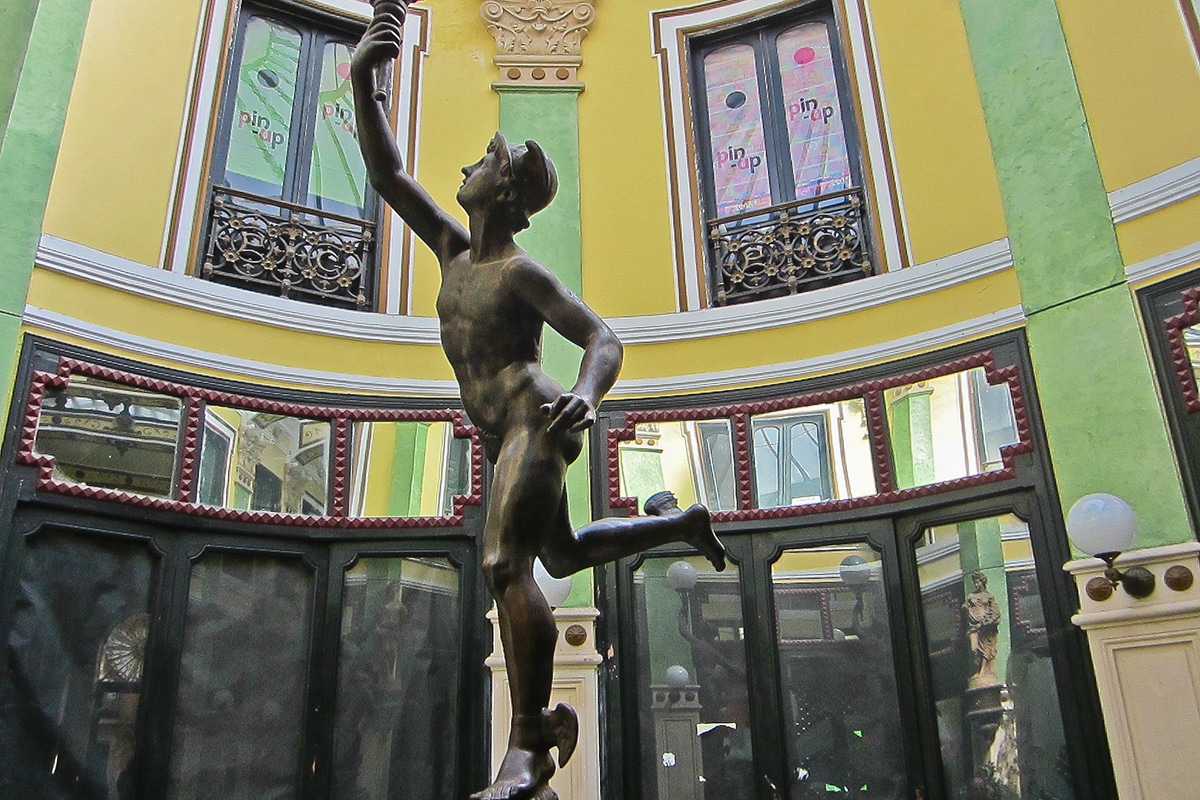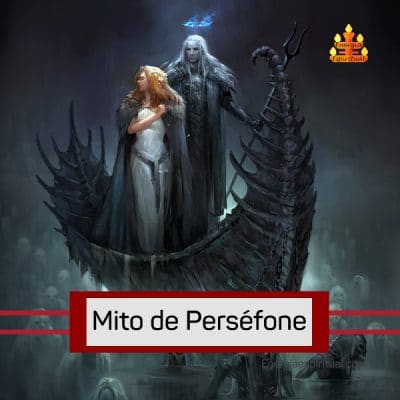
It is no secret that the Romans anciently worshiped many different deities. Each of them represented certain aspects of life and had specific features that distinguished them. One of them is the god Mercury, that probably sounds more familiar to you with the name of its Greek analog.
If you want to know more about this Roman deity, I recommend that you keep reading. In this article we will explain who is the god Mercury, what is his Greek analogue and how he used to be represented. In the event that you like Roman mythology, this knowledge cannot be missing.
Who is the god Mercury?

Surely you already know that, in Roman mythology, the various gods have names of planets. Therefore it is not surprising that there is one called Mercury. He is the god of commerce and, according to myths and legends, he is the son of Maia Maiestas and Jupiter. The name of the god Mercury comes from the Latin term mex, which translates as "commodity". Apart from being the Roman deity of commerce, he also represents messages, eloquence, communication, divination, borders, travellers, luck, thieves and tricks.
While it is true that the oldest forms corresponding to this deity are related to the Etruscan god called Turms, The vast majority of the mythology and characteristics of Mercury have their origin in its Greek analog known as Hermes, which we will talk about later.
It should be noted that the god Mercury has served as inspiration to name different things in the scientific world, such as the planet Mercury, the mercurial plant and the element mercury. Also, The term "mercurial" is commonly used to refer to someone or something unstable, erratic, or volatile. This way of expressing himself derives from the fast flights made by the god Mercury to get from one place to another. In fact, he is the messenger of the gods.
What Greek god does Mercury represent?
The deities of Roman and Greek mythology are closely related. Each has its analogue in the other culture. As we have already mentioned above, the god Mercury is called Hermes in Greek mythology, where he also plays his role as a messenger and trade god. He also represents the same as Mercury: travelers, borders, cunning, liars, thieves, etc. In addition, he is in charge of guiding the souls of the deceased in the underworld.
In Greek mythology, Hermes is the son of Zeus (the equivalent of the god Jupiter) and the Pleiad Maya. Despite not being one of the most notable deities of Olympus, he appears in many myths and legends, being one of the best known the one that deals with the changes of the seasons. It tells that the god of the underworld, Hades, kidnaps Persephone to make her his wife. After this event, the victim's mother, who is Demeter, the goddess of the fertile land and the seasons, was very sad. She consequently cursed the Earth until she got her daughter back. In this way began a time of agony for human beings.

After that event, Zeus decides to send Hermes to the underworld so that he can negotiate with Hades for Persephone's release. In the end they manage to reach a pact: She will have to spend six months with Hades in the underworld, and the other six months she could stay with her mother Demeter on Earth. The goddess of the seasons and the fertile land saddens during the absence of her beloved daughter, which is reflected in the coldest seasons of the year: Autumn and winter. Instead, when Persephone returns to her, he becomes very happy, ushering in the seasons of spring and summer.
How is Mercury represented?

As we have already mentioned before, the god Mercury is not an original deity created by the Romans, if not that it was adapted following the example of the Greek god Hermes when both religions were syncretized in the third century BC Until then, in Roman mythology there were the so-called Dei Lucrii, who were the gods of economic activities, but these were replaced by Mercury.
For this reason, this Roman deity is so similar to the Greek god Hermes. When it comes to representing them, whether through texts, drawings or sculptures, They used to wear a type of hat called pétaso and winged sandals called talarias. On some occasions they even added the wings directly to the ankles of the god. Also, in almost all their representations they hold a caduceus. It is a herald rod distinguished by two intertwined serpents. It is the symbol of trade and economic institutions. It was a gift that he gave her Apolo to Hermes.
It is also very common to relate deities to different animals, for these represent different things, just like the gods. In the case of Mercury or Hermes, these used to appear together with one of the following animals:
- a rooster: It is the herald that announces the new day.
- A goat or a lamb: They represent fertility.
- A turtle: According to Greek mythology, Hermes created the first lyre using a tortoise shell. Hence, it is usually associated with this animal.
Since the god Mercury is not one of the primitive deities that survived the earliest period of the Roman Empire, also known as the "Roman monarchy," he had no assigned flamen. The flamines were the most prestigious priests of Ancient Rome, being able to even be equated with the pontiffs. Nevertheless, The Roman messenger god did have an important festival in his name every May 15. It was called "the Mercuralia" and during this festivity, the merchants took water from their sacred well to sprinkle it on their heads.
Although there is no longer a widespread belief in Roman mythology, its myths and protagonists are extremely interesting. The ancient polytheistic cultures are full of very curious and entertaining legends that have inspired many literary novels and stories.